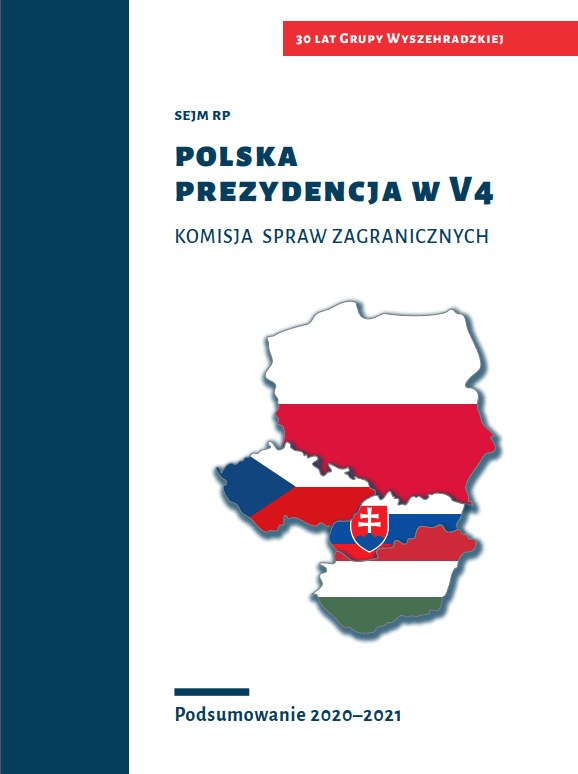30 years ago, at Visegrad Castle, three countries pledged their support on the road to modernity. They created the V4 Group, which not only survived the great changes in Europe itself, but today is an important player in the international arena.
Mutual support and cooperation facilitated the entry of Poland, Hungary and the Czech Republic into NATO just eight years after the Group was established. Slovakia later joined the Alliance. The next important step was joining the European Union. Since 2004 all the countries of the Group have been full member states. From countries struggling to shake off the stigma of communism, fighting poverty, rebuilding the economy and social identity V4 has become a community of interests. A community that is respected by other important players in the world.
V4's trade turnover with Germany is more than 50 percent higher than Germany's with France. The 65-million-strong market is developing faster than most countries of the so-called "old Union". V4 means investments in infrastructure, joint educational and financial projects. An important institution established by the initiative created in Hungary in 1991 was the International Visegrad Fund, which came into being 9 years later. Its assumption is to support cultural, scientific, educational and tourist initiatives in the countries of the Group and neighbouring countries - mainly post-Soviet and former Yugoslavia. The Fund's budget amounts to €8 million from the contributions of the V4 countries and additional amounts from other states. The Visegrad Group is today in Europe an important catalyst for change and taking the initiative in matters concerning the future of the EU.
In the era of the pandemic, we can see how effective the Visegrad format is, including in coordinating mutual assistance. It is worth mentioning, for example, the establishment of the V4 virtual center for COVID-19. The epidemic has shown the importance of good neighbourly relations in crisis management. The creation of coordination centers and the exchange of information and medical equipment between our countries contributed to stopping the number of infections and illnesses.
During the past three decades, we have also developed military, energy, infrastructure and cultural cooperation. A key element of the Visegrad Group countries' closer relations has become cooperation within the framework of the Tri-City Initiative, which allows for enhancing military and energy security as well as attracting investors to the region. There are also areas on which we should still work intensively. One of them is transport and ensuring continuity between the V4 countries. The answer to this situation is the construction of North-South infrastructure with investments such as Via Carpatia or high-speed rail, which will connect the capitals of our four countries. We still face challenges in the areas of security, migration, environmental protection or digitalization.
Marek Kuchcinski, MP and Speaker of the Sejm of the 8th term (2015-2019), has for years championed the development of parliamentary diplomacy. This has resulted in dozens of meetings with representatives of legislative bodies of other countries as a parliamentarian, an active citizen of Przemyśl, Podkarpacie, Poland and Europe. Acting since September 15
2020 as Chairman of the Foreign Affairs Committee (FAC) of the Sejm of the Republic of Poland, continues the line of foreign policy initiated by the late President Lech Kaczyński, seeking to strengthen Poland's position in the international arena. Marshal Kuchciński held consultations with heads of parliamentary foreign affairs committees not only from the V4, but also, among others, from Estonia, Georgia, Lithuania, Latvia, Germany, Romania, Slovenia, Ukraine and Italy.
- For full success, it is essential that democratically elected representatives in Parliament or in local authorities are also involved in concrete projects. Moreover, cooperation and meetings of Central and Eastern European parliaments complement or keep up with what has been happening in the "old" EU or in Mediterranean Europe for many years now. Parliamentary cooperation supports the policy of governments and presidents of these countries, looking for a recipe for important challenges, such as migration or security problems - explains Marek Kuchciński. - Our activity is also expressed in the cooperation of Carpathian countries. Its development element is the cyclical conference Europe of the Carpathians held in various places in Poland - emphasizes the head of SZA.
What are the plans for the future? First of all, discussion on the future of Europe, restarting the Eastern Partnership and the Weimar Triangle, the Carpathian strategy.
M. Olejnik



